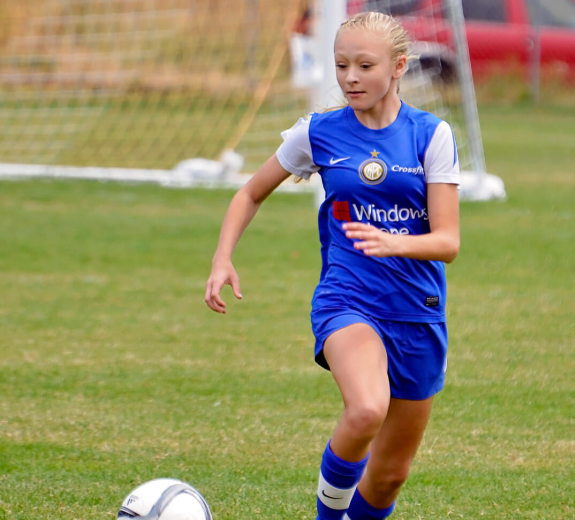
Elite Soccer Player Contributes to Research
In March of 2015, 13-year-old Lizzie Blockhus experienced a week of being very tired and not feeling well. “I woke up in the middle of night and was dying of thirst,” she explains. “Then I was at my sister’s soccer game, dying of thirst again and I knew something wasn’t right. My mom had me test my sugars on my sister’s meter and they were high. She rushed me to Seattle Children’s Hospital.” Lizzie was diagnosed with type 1 diabetes.
Even though Lizzie’s 16-year-old sister has type 1 diabetes, Lizzie didn’t think she would get the disease. “It didn’t seem real because I’m used to saying my sister has it, not me,” she says.
Lizzie joined a clinical research study for people aged 12 to 45 years old who are newly diagnosed (less than three months) with type 1 diabetes. The study is through TrialNet, an international network of researchers who are exploring ways to prevent, delay and reverse the progression of type 1 diabetes. Carla Greenbaum, MD, head of BRI’s Diabetes Research Program, is also the chair of TrialNet.
In the study, TrialNet researchers are testing whether a low dose of ATG (Thymoglobulin®) used alone or in combination with GCSF (Neulasta®) will help people with new onset diabetes continue to make some of their own insulin. A pilot study found that those who received the combination maintained insulin production for up to one year after treatment compared to the untreated group, who experienced a nearly 40 percent decline.
“Many people are still producing small amounts of insulin at the time of diagnosis,” says Dr. Greenbaum. “TrialNet looks for treatments that can help extend insulin production, since even small amounts of natural insulin production can decrease long-term complications and improve disease management. If this combination of drugs is successful it could be a very promising therapy.”
Lizzie joined the study to help other people out. “We need a cure,” she states. “I hope that the study is positive and that the medicine works and can help people in the future. I would advise people to join studies because you learn how they work. You also meet some very fun people along the way.
“Type 1 diabetes hasn’t affected me that much except I have to look out for my health,” says Lizzie. She attends middle school and plays soccer on elite teams. “Having diabetes doesn’t stop you from anything. It just makes you a little bit more special.”
For relatives of people with type 1 diabetes—who are at 15 times the risk of developing the disease—TrialNet offers a unique risk screening test that can identify those persons with the highest risk of developing type 1 diabetes years before symptoms appear. Those individuals found to be at highest risk may be eligible to join a prevention trial, testing ways to delay and prevent type 1 diabetes.
Immuno-what? Hear the latest from BRI
Keep up to date on our latest research, new clinical trials and exciting publications.


